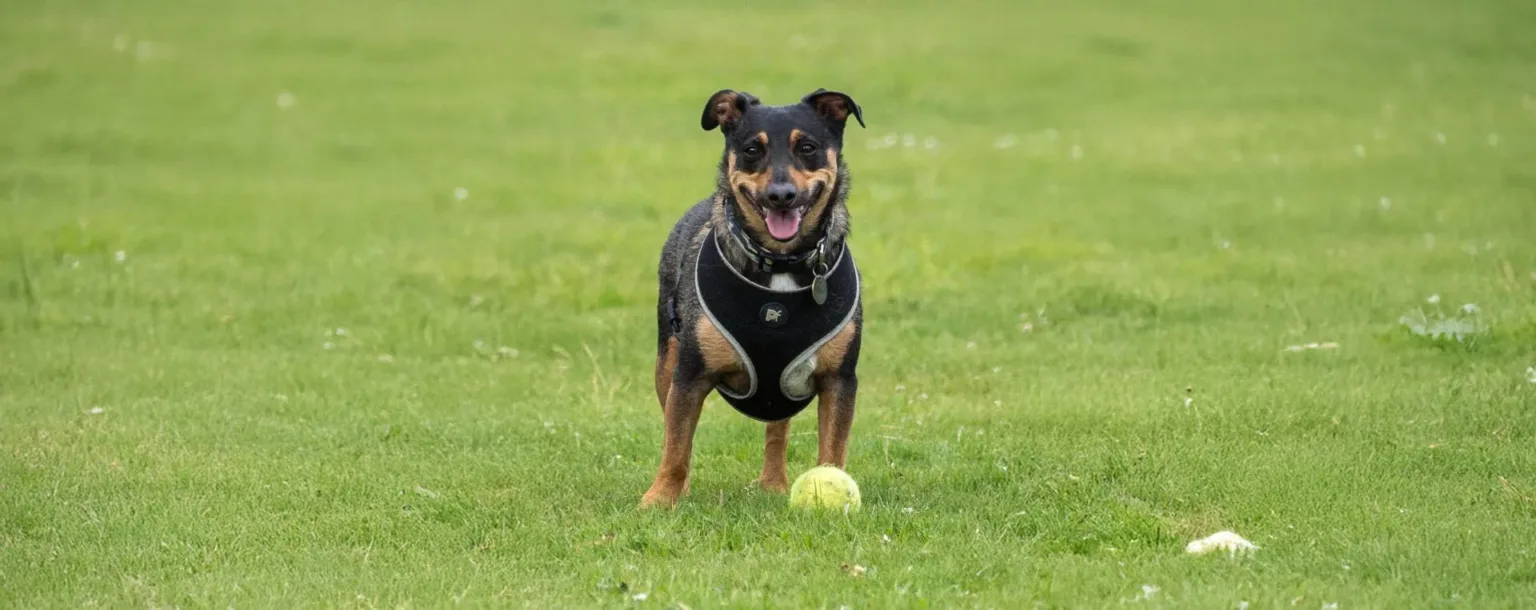When it comes to pets, we've all got questions
Ever feel like your pet is from another planet?

We'll explain how to manage your dog's weight, preventing obesity and improving their health.
Weight problems are common in dogs, but even a little excess weight could cause health conditions, such as arthritis, diabetes, severe heart disease, liver disease and depression.
Dogs that have a health weight live longer than an overweight dog. If your dog is overweight, you could be shortening their lifespan by as much as two years. The good news is that improving your dog’s diet and exercise will make a significant difference.
Here what to look out for:
For more information, check out this Dog Size-O-Meter, a visual guide put together by UK Pet Food.
It’s important to know that some medical conditions can actually cause weight gain, speaking to your vet and taking your dog for regular check-ups is a useful tool in managing your dog’s overall health and wellbeing.
Often the most loved and cherished pet dogs are amongst those most likely to be grossly overweight. We might reward them and show them how good they are by given them one too many treats, so it’s important to limit extra titbits we give our dogs and always check the food labels and weigh out your dog’s food.
Age and breed are also big factors when it comes to weight gain in dogs. Spaniels in particular are more prone to putting on weight, but the risk is the same for any type of dog. All dogs can become overweight so it’s important to take the necessary steps to prevent this. One other factor to take into consideration is neutering as this alters a dog’s metabolism and this can make them gain weight. As dogs get older, they become less active and are more prone to weight gain.
If your dog is overweight, create a plan of action.
Exercise is one of the best ways to help your dog lose that unwanted, excess weight. And if you struggle to get out for walks in the park or countryside, there are plenty of ways you can incorporate exercise into your dog’s routine, whether it’s in the house or garden. Many dogs love toys, so fetch or search games are excellent forms of physical and mental exercise.
Try a healthy treat swaps. Instead of giving your dog a titbit when you’re eating, try offering vegetables like carrots, broccoli or cabbage. To begin with they may be unlikely to eat it and will be expecting you to provide their usual treat, but you will need to stay firm and stick to your goals.
Most veterinary surgeries run free weight clinics. The nurses will help you weigh your dog, and work out a daily food amount. You can pop back for regular weigh-ins just like a slimming club. If your dog is seriously overweight, the next step might be putting them on a special prescription food diet.
Feeding titbits is the biggest factor we can change. The occasional “good dog” biscuit here and there can contribute greatly to weight gain. Owners often struggle to not respond to their dog when they’re sitting right there asking for a biscuit, bit of cake, or a crisp. Every time we give them a little titbit when we see the ‘puppy dog eyes’ looking at us, we are reinforcing and rewarding their asking behaviour. When we reinforce that behaviour, we are strengthening it and in turn, increase the likelihood of it happening again.
Many dry complete diets are easy to over feed, your dog only needs a small portion to provide all of the daily nutritional requirements. Always check the packaging and weigh your dog’s food out. Some manufactured foods also contain a lot of fat and sugar, so always read the ingredients on the packaging to make sure you know what you are feeding your dog.
For more tips on monitoring your dog’s health and wellness, read our articles on Ask Woodgreen today.